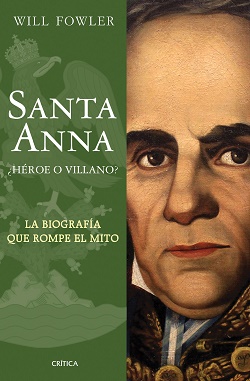Rewriting history: Santa Anna of Mexico

In 2007, Professor Will Fowler’s biography of General Antonio López de Santa Anna (1794-1876) challenged the commonly held view that this six-time president of Mexico was responsible for all the calamities that befell the country after independence.
When two different Spanish translations of this biography were published in Mexico, there was a marked shift in the way Mexicans came to view his actions and their country’s past. The first translation was extensively publicised as part of the Bicentenary of the War of Independence in 2010. A civic group formed in Xalapa which was committed to organising a range of activities aimed at commemorating Santa Anna’s forgotten historical legacy, mark his achievements, and create awareness of how Mexico’s “official history” had misrepresented the “Liberator of Veracruz”.
In particular, the Unión Cívica de Xalapa attracted the attention of the press in February 2014 by commemorating the 138th anniversary of Santa Anna’s death. They presented a wreath before the house where he was born and hosted a commemorative event in the capital three months later which was attended by one of Santa Anna’s descendants.
The subsequent publication of Santa Anna. ¿Héroe o villano? La biografía que rompe el mito in May 2018 by the commercial publishing house Planeta increased public knowledge and debate, and the book is now compulsory reading in a number of Mexican universities.
It has informed the way Santa Anna is presented in plays such as Ricardo Marcos G.’s Santa Anna, la tentación del engaño.
It has helped legitimize Mexico City’s Palacio de Bellas Artes’s decision to host an exhibition in 2019-2020 dedicated to the Gran Teatro de Santa Anna, and has impacted on the way a new generation of students now views their country’s past.